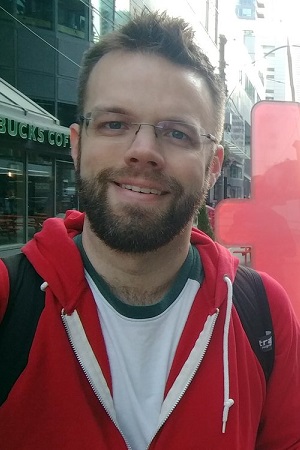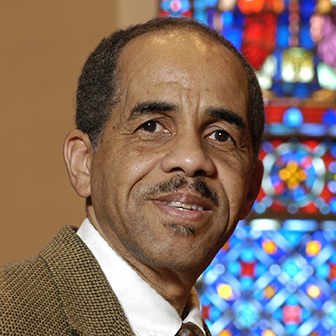Accelerated MA in Liberal Studies Faculty
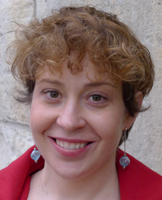
Kasey Evans
Faculty Director
Contact Information
Kasey Evans, Faculty Director and associate professor of English at Northwestern, teaches and writes about medieval and Renaissance literature. Her book Colonial Virtue: The Mobility of Temperance in Renaissance England (University of Toronto Press, 2012) argues that the virtue of temperance underwent a semantic sea-change during the English Renaissance, evolving from a paradigm of self-discipline and moderation into a value of time-management, efficiency, and colonial aggression. Areas of particular interest include English Renaissance adaptations of Italian poetry (Dante, Ariosto, Tasso); ideologies of race, gender, and sexuality as they shape Renaissance English literature; and literary and critical theory, from medieval exegetes through postmodern philosophers. Evans received her PhD from the University of California, Berkeley.

Gerald Butters
Contact Information
Gerald Butters is a historian of film specializing in the intersection of race and gender in motion pictures. A Fulbright scholar, Butters has lectured on film in Romania, Luxembourg, France and Canada and at many American universities. His books include Black Manhood on the Silent Screen, Banned in Kansas: Motion Picture Censorship, 1915–1966, and the upcoming From Sweetback to Superfly: Race and Film Audiences in Chicago's Loop. He is editor of an anthology on Blaxploitation films. Butters received his PhD in History from the University of Kansas.
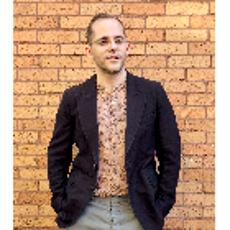
Corey Byrnes
Contact Information
Corey Byrnes received a BA from Brown University in 2003, an MPhil from the University of Cambridge in 2005, and a PhD from the University of California, Berkeley in 2013. His research and teaching areas include the environmental humanities; 19th-21st century Sinophone literature, film, and visual culture; animal studies; and landscape and spatial studies. He is jointly appointed in the Alice B. Kaplan Institute for the Humanities and the Department of Asian Languages and Cultures, and is also a core-faculty member and Director of Graduate Studies in the Comparative Literary Studies Program. Professor Byrnes’ first book project, Fixing Landscape (Columbia University Press, 2019), won Columbia University’s Weatherhead East Asian Institute’s First Book Award in 2018 and was awarded honorable mention for the American Comparative Literature Association’s 2020 Harry Levin Prize for outstanding first book in comparative literature. His second project is about “cultures of threat” and how they produce unfolding environmental and social futures between the United States and China and across the Pacific. Cultures of threat encompass forms of representation and lived practices through which an imagined future, when feared, comes to seem not only real but imminent. Unlike risk, threat describes not what is likely or unlikely to happen—the probable— but rather what could conceivably happen—the possible. It takes shape through speculative fictions of the plausible designed to create fear—and to incite action. “Cultures of Threat” theorizes the understudied mechanisms of threat in two multi-chapter case studies that reconsider the relationship between “rising China” and a global environmental imaginary in which it is treated as an existential threat.
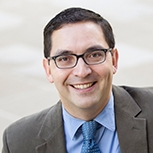
Geraldo Cadava
Contact Information
Geraldo Cadava, an Associate Professor of History and Latina/o Studies, specializes in the histories of Latinas and Latinos in the United States, the U.S.-Mexico borderlands, and Latin American immigration to the United States. His first book, Standing on Common Ground: The Making of a Sunbelt Borderland (Harvard University Press, 2013 & 2016), is about cultural and commercial ties between Arizona and Sonora, Mexico, since World War II. It won the Frederick Jackson Turner prize, awarded annually by the Organization of American Historians to the author of the best first book in any field of American History. He is currently writing a history of Latino Conservatism from the 1960s to the 1990s. His scholarly and popular essays have appeared in the Journal of American History, The New York Times, and The Atlantic, among other publications. As a lifelong learner himself, he is especially interested in working students in Northwestern's School of Professional Studies.
Nick Davis is Associate Professor of English and Gender & Sexuality Studies at Northwestern. He recently received the NU Alumnae Teaching Professorship, one of the highest awards for classroom instruction across the university. Nick studies narrative film, queer theory, feminist and gender studies, and American literature. His book The Desiring-Image: Gilles Deleuze and Contemporary Queer Cinema theorizes a new model of contemporary queer cinema based on formal principles rather than identity politics, drawing heavily on Deleuzian philosophies of film and sexuality. He has published many other essays on subjects including Julie Dash’s Illusions, Alfonso Cuarón’s Y tu mamá también, James Baldwin’s Blues for Mister Charlie, and the performances and political activism of Julie Christie and Vanessa Redgrave. He is also the author of the film reviews at www.Nick-Davis.com and a Contributing Editor at Film Comment magazine. Davis earned his PhD at Cornell University.
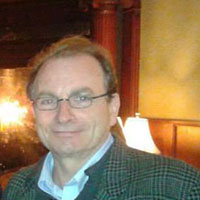
Scott Durham
Contact
Scott Durham, Associate Professor of French and Comparative Literary Studies, is the faculty director for the MALit Program and the director of graduate studies in French at Northwestern. He has taught both graduate and undergraduate courses since 1994, with a primary focus on 20th-century literature, film and the relationship between literature and philosophy. His scholarly publications since he completed his doctorate at Yale include Phantom Communities: The Simulacrum and the Limits of Postmodernism (Stanford University Press), Jean Genet: In the Language of the Enemy (a special number he edited for Yale French Studies) and numerous articles. He is also the co-editor (with Dilip Gaonkar) of a collection of essays, Distributions of the Sensible: Rancière, Between Aesthetics and Politics (forthcoming from Northwestern University Press). He is currently writing two books, with the working titles Between Rancière and Deleuze: Aesthetics, Politics, Resistance and Eurydice’s Gaze: Historicity and Memory in Postwar Film, as well as co-editing a collection of essays (with Caitlyn Doyle), Geopolitics and Media Aesthetics.
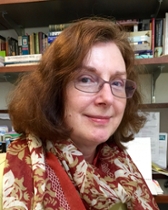
Elzbieta Foeller-Pituch
Adjunct Lecturer, Assistant Director Center for Historical Studies
Contact Information
Northwestern University Historical Studies
Elzbieta Foeller-Pituch (Assistant Director, Chabraja Center for Historical Studies, Northwestern University) is a literary historian who has published articles on twentieth-century American authors John Barth and John Gardner, as well as on Henry James. Her chapter on the great Polish science fiction and experimental writer Stanislaw Lem appears in Being Poland: A New History of Polish Literature and Culture since 1918, edited by Tamara Trojanowska, Przemyslaw Czaplinski, and Joanna Nizynska (University of Toronto Press, 2018). Elzbieta's current research focuses on the reception of classical antiquity in American culture, a topic that stems from her research during an American Council of Learned Societies fellowship at Harvard University. She has written on Athena as a cultural icon in the United States in the book American Women and Classical Myths, ed. Gregory Staley (Baylor UP, 2009) and she is now working on a study of the enduring influence of Greek and Roman myths in American fiction and popular culture. At SPS Elzbieta teaches classes on 20th-century experimental East European and American fiction, on global postmodern fiction, and on 19th-century British fiction. In addition, she teaches literature seminars at the Newberry Library in Chicago, often on detective fiction.
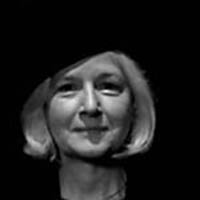
Christine Froula
Contact Information
Christine Froula, professor of English, Comparative Literature, and Gender Studies at Northwestern, teaches and publishes widely on international and interdisciplinary modernism. Her books include: A Guide to Ezra Pound's Selected Poems (New Directions), To Write Paradise: Style and Error in Ezra Pound's Cantos (Yale), Modernism's Body: Sex, Culture, and Joyce (Columbia), Virginia Woolf and the Bloomsbury Avant-Garde: War, Civilization, Modernity (Columbia). Some recent articles include: "War, Empire, and Modernist Poetry, 1914-1922," "War, Peace, and Internationalism in Bloomsbury," "Scribbling into Eternity: Paris, Proust, and Joyce's 'Proteus,'" "Sovereign Subjects: Stephen Dedalus, Irish Conscience, and Ulysses's Utopian Ethos," "Proust's China," "Unwriting The Waves," "'Dangerous Thoughts in Bloomsbury': Ethical Aestheticism and Imperial Fictions," "Orlando Lives: Virginia Woolf's Orlando in Global Adaptation and Performance," and "On Time: 1910, Human Character, and Modernist Temporality." A strong believer in lifelong learning, she has taught many graduate courses for SPS over the years, directed a number of Master's theses, some of them prizewinning, and enjoys working with the talented, committed adults who enroll in the SPS Master's degree programs.
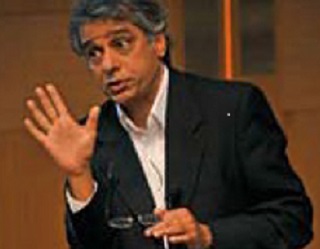
Dilip Gaonkar
Contact Information
d-gaonkar@northwestern.eduDilip Gaonkar is a professor of culture and communication and the director of the Center for Global Culture and Communication. He also directs the Center for Transcultural Studies, an independent scholarly research network concerned with global issues. Gaonkar has two sets of scholarly interests: the intellectual tradition of rhetoric with both its ancient roots and its contemporary mutations and global modernities and their impact on the political. He is currently the executive editor of the journal Public Culture, and he has written and lectured widely on rhetoric, globalization, democracy, and the media. In addition to his work for the Department of Communications Studies, Gaonkar also serves as an adjunct faculty member in the Department of African American studies, an affiliate faculty member in the graduate program in Screen Cultures in Asian Studies, and a senior affiliate fellow at the Center for the Study of Developing Societies in Delhi, India.
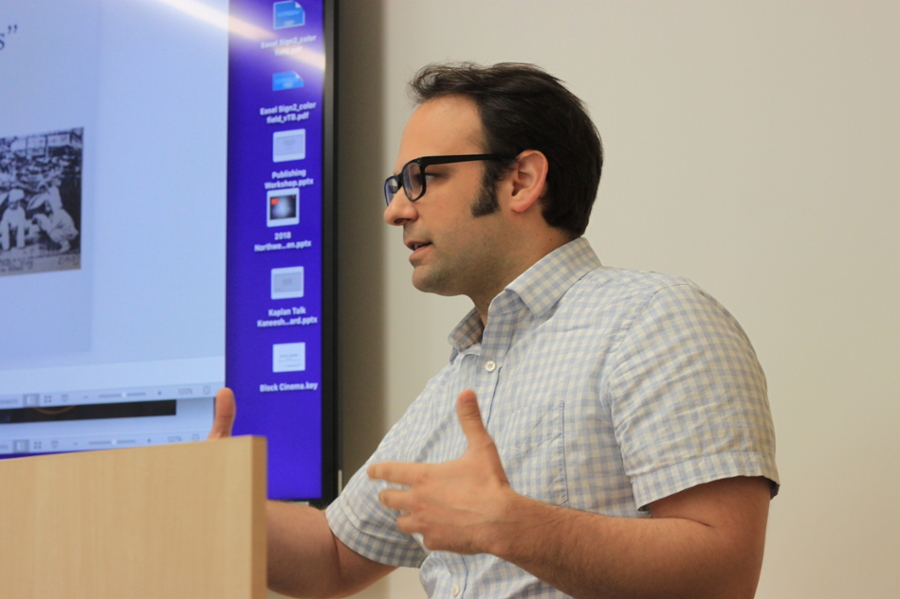
James J. Hodge
Contact Information
James J. Hodge (he/him) is Associate Professor in the Department of English and the Alice Kaplan Institute for the Humanities. He specializes in digital media aesthetics at the intersections of cinema, art history, and literary studies, especially experimental media art genres such as new media art, avant-garde film, and electronic literature. Focusing also on media and critical theory he has special interests in phenomenology and psychoanalysis (object relations).
His research is devoted to the broad question of how artistic forms express the incoherence of lived experience. His first book Sensations of History: Animation and New Media Art (Minnesota, 2019) argues that animation becomes crucial for understanding the ways in which history changes in the digital age. His current book project, ""Ordinary Media: An Aesthetics of Always-On Computing"" examines a range of experimental and popular digital artworks in their capacity to express the felt dynamics of always-on computing: from anxiety and sociability to productivity and vulnerability. This and other recent work attend to the explosion of new networked genres such as supercuts, selfies, and animated GIFs, and theorizes them as aesthetic strategies of provisional attunement to the vicissitudes of the historical present.
Jules Law
Contact Information
Jules Law is associate professor of English and comparative literature. His essays on Victorian literature, James Joyce, and literary theory have appeared in PMLA, Critical Inquiry, SIGNS, NLH, ELH, Nineteenth Century Literature, and other journals. His book The Rhetoric of Empiricism traces the philosophical figures of surface, depth, and reflection throughout the aesthetic theory of the 18th and 19th centuries. He is currently completing two books, one on the politics of fluids in the Victorian novel, and the other on the epistemology of narrative figures. He has received numerous teaching awards, most recently the Charles Deering McCormick Professorship of Teaching Excellence. His PhD is from Johns Hopkins University.
(847) 942-1279
Larry Murphy is emeritus professor of the History of Christianity at the Garrett-Evangelical Theological Seminary, on the Evanston campus of Northwestern University. His research and publications have focused upon various dimensions of African American religious history, leadership, and devotional practices. They include, among others, Sojourner Truth: A Biography, African American Faith in America, Down by the Riverside: Readings in African American Religion, (with Gordon Melton and Gary Ward) The Encyclopedia of African American Religions, and Piety and Liberation: AnHistorical Exploration of African American Religion and Social Justice, in Iva E. Carruthers, et.al., eds., Blow the Trumpet in Zion. He served as Director of PhD Studies at Garrett-Evangelical; as an historical consultant to the Blackside, Inc., multimedia project This Far By Faith, a six-part television series on the role of the black church and other African American faith communities in American history; as historical consultant, script consultant, and on the production team for the video Where Everyday Is Sunday, on the history and social witness of African American Churches in Chicago; and in his work as oral historian of African American religion, he and his research team have amassed an extensive collection of audio and videotape material, along with supportive documents and photographs. He is a long-standing member of the Executive Committee of the Society for the Study of Black Religion, an international organization of scholars and researchers. He received his PhD from the Graduate Theological Union/University of California, Berkeley.
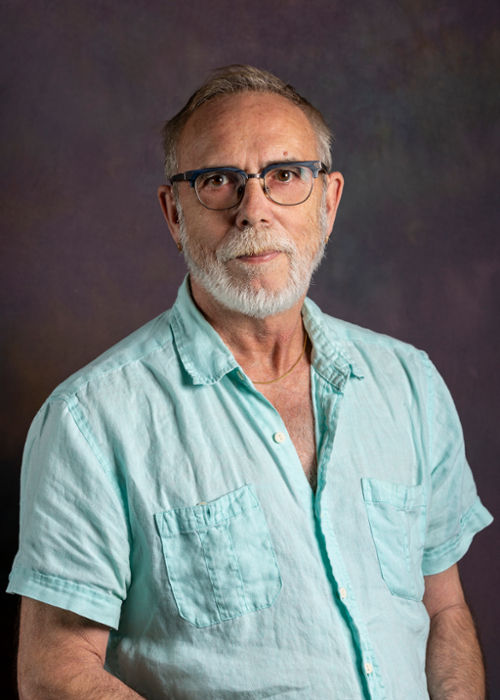
Angelo Restivo
Contact Information
angelo.restivo@northwestern.edu
Angelo Restivo's work centers on aesthetics and political affect. Specifically, he looks at how, at the macro level, the moving-image work is expressive of larger social and economic shifts, while at the micro level, it registers and calibrates our affective relationship to everyday life. The moving-image objects he studies range from postwar and contemporary art cinemas, to postwar auteurs, to contemporary television.
In Restivo's first book, The Cinema of Economic Miracles, he proposed a new way of looking at the Italian art cinema of the 1960s, in light of both the profound spatial changes wrought by the economic miracle and the emergence of new social subjects. In ‘Breaking Bad’ and Cinematic Television, he performs a granular analysis of the series’ visual style in order to explore the ways in which it opens up to an allegorical examination of everyday life in neoliberal America. In the early 2000’s, Restivo coauthored, with Richard Cante, a series of essays on gay pornography, which used the films to track the evolution of the post-Stonewall gay male subject in the wake of urban decay and renewal, globalization, and the rise of neoliberalism.
Currently he is beginning to explore the video essay (as critical intervention): he just completed his first video essays, one of which is an accompaniment to his book on Breaking Bad.
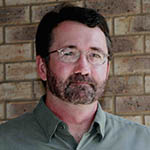
Bill Savage
Contact Information
Bill Savage (PhD Northwestern) has been teaching in the SPS MA Lit program for more than 15 years. He is a scholar of Chicago literature and culture, and his most recent publication is the co-edited and annotated edition of Chicago by Day and Night: The Pleasure Seeker’s Guide to the Paris of America (Northwestern UP, 2013). He also co-edited the 50th Anniversary Critical Edition of Nelson Algren’s The Man with the Golden Arm and the Annotated edition of Algren’s Chicago: City on the Make. He writes regularly for local publications, and is a lifelong resident of Chicago’s Rogers Park neighborhood.
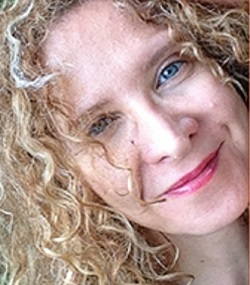
Domietta Torlasco
Contact Information
Domietta Torlasco works at the intersection of film theory and practice. After receiving a PhD from the department of Rhetoric and Film Studies at Berkeley, she completed an MFA in Film, Video, and New Media at the School of the Art Institute of Chicago. From 2003 to 2007 she was a Harper-Schmidt Fellow and a Collegiate Assistant Professor in the Humanities at the University of Chicago.
Torlasco’s research and teaching interests include critical theory, psychoanalysis, and feminist theory, as well as Italian and French cinema, the SF and noir genres, and time-based media arts. She is the author of three books: The Time of the Crime: Phenomenology, Psychoanalysis, Italian Film (Stanford University Press, 2008), The Heretical Archive: Digital Memory at the End of Film (University of Minnesota Press, 2013), and The Rhythm of Images: Cinema Beyond Measure (University of Minnesota Press, 2021). Her video essays, which explore questions of domestic labor, borders, surveillance, and debt, have screened at national and international venues, including the Galerie Campagne Première in Berlin, the Walker Art Center in Minneapolis, and the Museum of Contemporary Art in Los Angeles.
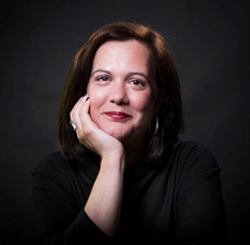
Alejandra Uslenghi
Contact Information
Office Phone: 847-467-1713
Office: Crowe Hall 3-113
Alejandra Uslenghi is Associate Professor of Spanish & Portuguese and Comparative Literary Studies. She received her PhD in Comparative Literature from New York University and her MA from New School for Social Research. She is the author of Latin America at fin-de-siècle Universal Exhibitions. Modern Cultures of Visuality (Palgrave, New Directions in Latino American Cultures, 2016) and editor of Walter Benjamin. Culturas de la imagen (Eterna Cadencia, Buenos Aires, 2011) and La cámara como método. La fotografía moderna de Grete Stern y Horacio Coppola (Eterna Cadencia, Buenos Aires, 2021). Her research focuses on modern literature and visual culture; photography and modern art in Latin America; critical theory and comparative modernist studies. She is currently at work on a book-length project that examines the intersection of modernist literary experimentation and photography, in particular twentieth-century women photographers.
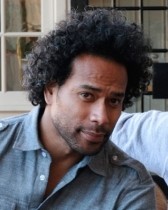
Ivy Wilson
Contact Information
Ivy Wilson teaches courses on the comparative literatures of the Black diaspora and U.S. literary studies with a particular emphasis on African American culture. His forthcoming book, Specters of Democracy: Blackness and the Aesthetics of Nationalism (Oxford UP), interrogates how the figurations and tropes of blackness were used to produce the social equations that regulated the cultural meanings of U.S. citizenship and traces how African American intellectuals manipulated the field of aesthetics as a means to enter into political discourse about the forms of subjectivity and national belonging. Along with recent articles in ESQ, Arizona Quarterly, and PMLA, his other work in U.S. literary studies includes two forthcoming edited books on the nineteenth-century poets James Monroe Whitfield and Albery Allson Whitman. His current research interests focus on the solubility of nationalism in relationship to theories of the diaspora, global economies of culture, and circuits of the super-national and sub-national. Wilson has a PhD in African American studies and English from Yale University.


